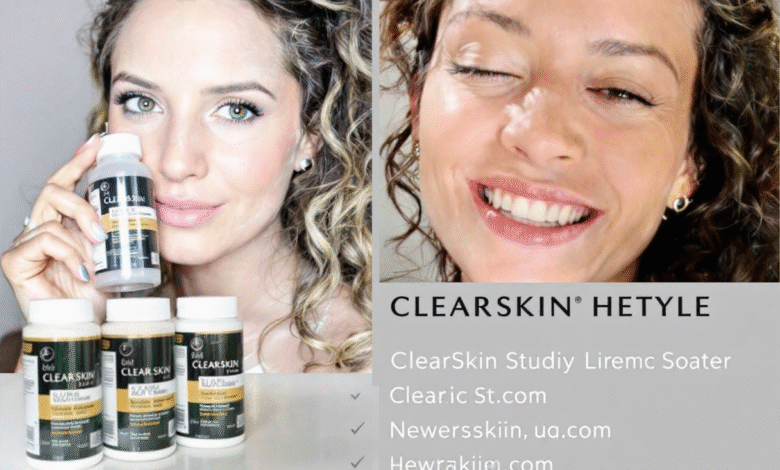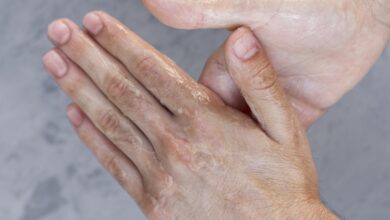The Truth Behind “clearskinstudy emails addresses”: What You Need to Best Know

Introduction: What’s Up With “clearskinstudy emails addresses”?
If you’ve found yourself googling “clearskinstudy emails addresses”, you’re probably curious about one of two things: either you’ve received an email from this mysterious source, or you’ve come across it while researching skincare trials or dermatology studies. Either way, you’re not alone. This oddly specific phrase has been popping up in forums, inboxes, and keyword searches, raising a lot of eyebrows—and questions.
But here’s the thing: not everything that lands in your inbox with a “clinical” or “dermatology” angle is legit. There’s a growing trend of companies (and sometimes even scammers) using health-related email campaigns to grab your attention. “clearskinstudy” is a term that seems to hint at a skincare or dermatological study, but what’s behind the curtain?
In this article, we’re going to break it all down for you—from what these emails are, to whether they’re trustworthy, to how your email might’ve ended up on their list in the first place. By the end, you’ll be way better equipped to handle any sketchy or questionable emails floating around in your inbox.
What is “clearskinstudy”? Fact or Fiction?

So first things first: is clearskinstudy an actual, real dermatological study? The short answer? Maybe. But it’s complicated.
Sometimes, companies use names like “clearskinstudy” to make their outreach sound more official, almost like it’s backed by medical research or connected to a legitimate university. In some cases, these may be marketing campaigns in disguise—offering skincare trials that collect your data or push you toward purchasing products. Just because something sounds clinical doesn’t mean it is.
In other scenarios, clearskinstudy could refer to actual clinical trials where researchers are studying the effectiveness of new acne treatments, creams, or serums. These trials do exist, but usually, they are run by licensed institutions or research groups, and they won’t be spamming your inbox out of nowhere. If the email looks shady or lacks credentials, it’s probably not part of any real clinical effort.
Bottom line? The name itself doesn’t guarantee anything. It’s like someone calling their product “Doctor Approved Magic Cream”—just because it sounds scientific doesn’t make it trustworthy. That’s why you’ve got to dig deeper and look for telltale signs of authenticity.
Why Are You Getting Emails From “clearskinstudy”?

Now let’s talk inboxes. If you’re seeing emails from something that calls itself “clearskinstudy,” chances are, you’re wondering: how the heck did they even get my email?
Well, it could be one of several things. Maybe you signed up for a skincare product trial or downloaded a beauty-related eBook without realizing you were giving permission for follow-up emails. Maybe you entered a giveaway on Instagram or clicked a skincare ad that seemed harmless. Boom—your email’s now on a list. And that list may have been shared or sold.
Another possibility? Email scraping. This is when companies (or bots) pull publicly listed emails from websites, forums, or social media accounts. If you’ve ever posted your email somewhere visible—even once—it might’ve landed in the wrong hands.
Lastly, there’s the most obvious one: spam. Some senders simply guess common email formats, send out thousands of emails, and see what sticks. If the email doesn’t bounce back, they keep it on their radar. That’s how your address gets caught up in a flood of sketchy promotions.
Are These Emails Safe? The Red Flags to Watch For

Okay, now let’s get into the safety stuff. Are “clearskinstudy” emails harmless, or are they something to worry about? Here’s where things get real.
Start by looking at the email’s content. If it’s vague, full of buzzwords, or has weird grammar, that’s a red flag. Phrases like “exclusive skin trial,” “limited time offer,” or “claim your free spot” sound enticing but often lack real substance. Reputable studies include details: who’s running it, where it’s located, what participants should expect.
Next, hover over (don’t click!) the links in the email. Is it sending you to a reputable site? Or is it a sketchy URL that looks nothing like a medical or research institution? If it feels off, it probably is.
Another big warning sign is urgency. If they’re pushing you to act right now or threatening that you’ll “lose your spot” unless you sign up immediately, that’s a classic tactic used by scammers. Real clinical trials don’t usually operate that way. They’re more concerned with proper participant screening than with filling quotas.
How to Protect Your Email (and Your Skin)
Even if these emails seem harmless at first glance, they can be part of a much larger digital headache. The best approach? Be proactive.
First, mark suspicious emails as spam and don’t interact with them. Even clicking “unsubscribe” can sometimes confirm to the sender that your address is active, which just opens the floodgates.
Second, use an alias email when signing up for beauty or skincare promotions. That way, your main inbox doesn’t get flooded with marketing junk or potential phishing emails. Services like ProtonMail or Gmail aliases (e.g., yourname+skincare@gmail.com) can help keep things clean.
Lastly, invest in a good spam filter or email protection tool. Some apps can flag potential phishing attempts before they even hit your inbox. Combine that with a little common sense and you’ll be well protected.
What If You’re Actually Interested in a Skin Study?
Here’s the twist—not all skin studies are shady. Some are totally legit, and they can even offer free skincare products, compensation, or expert treatment. So how do you separate the good from the bad?
Look for clinical trials hosted by hospitals, dermatology clinics, or universities. Check out sites like ClinicalTrials.gov, which lists verified medical studies that are actively recruiting participants. These listings are detailed, transparent, and never push you to act fast.
Also, if a skincare brand you trust is hosting a product trial, do a little background research. See if they’ve run similar studies in the past, and check for real user reviews. If everything checks out, go ahead and sign up—just be cautious about what personal info you’re sharing.
And if the email really is from a legit source (though this is rare), you’ll probably be able to find their website, customer service, and social proof elsewhere online. If you can’t? That’s your sign to walk away.
Final Thoughts: Don’t Let the Name Fool You
So let’s wrap it up. The term “clearskinstudy emails addresses” might sound like it’s linked to some exciting dermatological breakthrough or product trial—but in reality, it’s more often used as a marketing hook or data collection tactic than a legit scientific study. That doesn’t mean all skin studies are bad, but it does mean you’ve got to stay sharp.
Use your common sense, trust your gut, and do your homework before clicking on anything. In today’s digital world, your inbox is prime real estate—and scammers are looking to move in. But with a little knowledge and some email hygiene, you’ll be one step ahead of the game.


